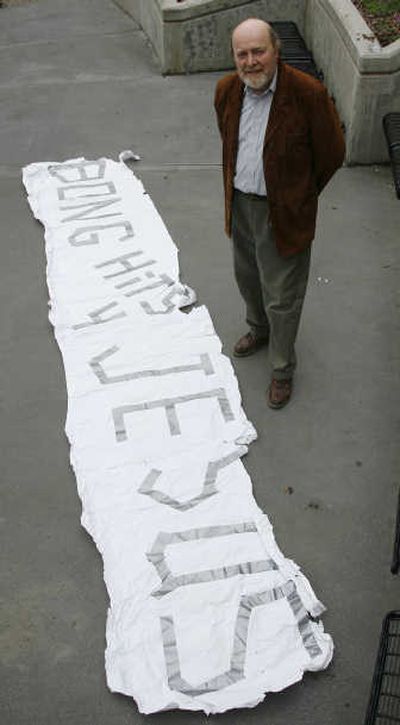Election ads wrongly banned, court says

WASHINGTON – A splintered Supreme Court on Monday undercut a key campaign-finance measure, ruling that the Federal Election Commission went too far when it banned pre-election ads prepared by Wisconsin Right to Life.
By 5-4, showing how the court is changing, justices concluded that the pre-election ads targeting Wisconsin Democratic Sens. Russ Feingold and Herbert Kohl in 2004 should have run.
“We give the benefit of the doubt to speech, not censorship,” Chief Justice John G. Roberts wrote. “The First Amendment requires us to err on the side of protecting political speech rather than suppressing it.”
The court’s decision was one of the most closely watched of its nearly completed term. Its implications, however, aren’t yet clear.
Roberts explicitly declared that the court wasn’t overruling part of the campaign finance law. The provision in question blocks unions and corporations from directly financing political ads within 60 days of general elections and 30 days of primary elections.
Roberts said these broader questions could be addressed another day.
But three other conservative justices – frequent swing voter Justice Anthony Kennedy, Justice Antonin Scalia and Justice Clarence Thomas – declared that they were prepared to strike down the ban on pre-election ads as an unconstitutional infringement on free speech.
And the four dissenters, disputing Roberts’ claim that the ruling was narrowly tailored to the Wisconsin case, said that the court effectively had overturned the campaign finance provision.
Unhappy supporters of the campaign-finance measure agreed.
“Any adman with a computer mouse and a modicum of creativity will be able to steer millions of dollars of special interest money into campaigns. It will be the Wild West all over again,” said Michael Waldman, the executive director of the Brennan Center for Justice at New York University Law School.
Also Monday, the court curbed students’ rights to advocate drug use or even joke about it, ruling against a former Alaska high school student who raised a banner at a sports rally in Juneau that read “Bong Hits 4 Jesus.”
Unamused by the 2002 antic, and unpersuaded by free-speech arguments, the court’s conservative majority ruled that a school principal acted reasonably in suspending the sign-waving student even though he wasn’t on school grounds.
More generally, the ruling enhances school authorities’ power to control students’ behavior.
Four other justices joined Roberts fully in the decision. A fifth, Justice Stephen Breyer, agreed with the majority for different reasons.